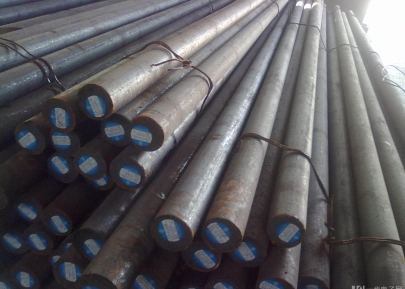Unlocking the Synergy: How Copper Revolutionizes Mold Steel Applications in Modern Manufacturing
In the realm of manufacturing, innovation often stems from the unlikeliest of partnerships. When I think about Copper and mold steel, it brings to mind a fascinating synergy that's shaping modern production standards. Just consider the implications of integrating copper into various mold steel applications. It’s not merely a technical innovation but a complete game changer.
The Fundamental Role of Copper in Mold Steel Applications
Copper possesses qualities that can enhance the functionality of mold steel significantly. From thermal conductivity to overall durability, its presence offers remarkable benefits. Imagine producing a mold that can dissipate heat quicker. This factor is critical in high-speed production environments. What’s even more intriguing? The cost-efficiency gained through reduced cooling times.
Why Mold Steel Manufacturers Should Care
For manufacturers investing in mold steel, understanding the advantages of copper can lead to superior product offerings. Some of the key benefits include:
- Enhanced heat dissipation
- Improved lifespan of molds
- Increased precision in molding
- Greater resistance to wear and tear
These features make copper-infused molds an attractive option. As I observe, manufacturers who embrace this innovative combination often see an uptick in production efficiency and mold longevity.
Exploring Market Trends: Copper Bars for Sale
Curiously, the surge in demand for Copper Bars For Sale reflects this growing trend. The manufacturing industry clamor for high-quality copper bars is not coincidental. When I researched various suppliers, the variety and quality offered were astounding. Ensuring availability directly impacts the ability to innovate rapidly. Copper bars act as raw materials, empowering shops to craft sophisticated molds that leverage copper's unique properties.
Economics of Copper in Manufacturing
The economics surrounding copper integration in mold steel is a double-edged sword. While the initial investment is often higher, the return on investment, *ROI*, can be significant. Consider this table outlining comparative costs and benefits:
| Feature | Without Copper | With Copper |
|---|---|---|
| Heat Dissipation | Moderate | High |
| Mold Lifespan | 2 Years | 5 Years |
| Production Speed | Standard | Faster |
The Future of Mold Steel and Copper Synergy
Looking to the horizon, what does the future hold? I can’t help but wonder about the advancements in metallurgy and alloying methods. Innovations such as metal matrix composites could lead to even more remarkable applications. Could we one day have a completely new category of molds designed exclusively with copper in mind? The possibilities seem endless.
Is Silver Plated Copper Worth Anything?
Transitioning from copper's role in mold making, many often ask if is silver plated copper worth anything? The answer is an emphatic yes! Silver-plated copper wires and products maintain significant resale value due to their conductivity and aesthetic appeal. The market for these substances is robust and continues to grow, much like the market for copper within manufacturing sectors.
Conclusion: Embracing Change for Future Innovations
As I conclude my exploration of copper and mold steel applications, it is abundantly clear that embracing this synergy is essential for future manufacturing breakthroughs. The potential for enhanced efficiency, reduced costs, and improved product quality beckons manufacturers to reconsider their material choices. In a field driven by innovation, copper stands tall. Its integration into mold steel not only transforms processes but propels us into a new age of manufacturing excellence.



